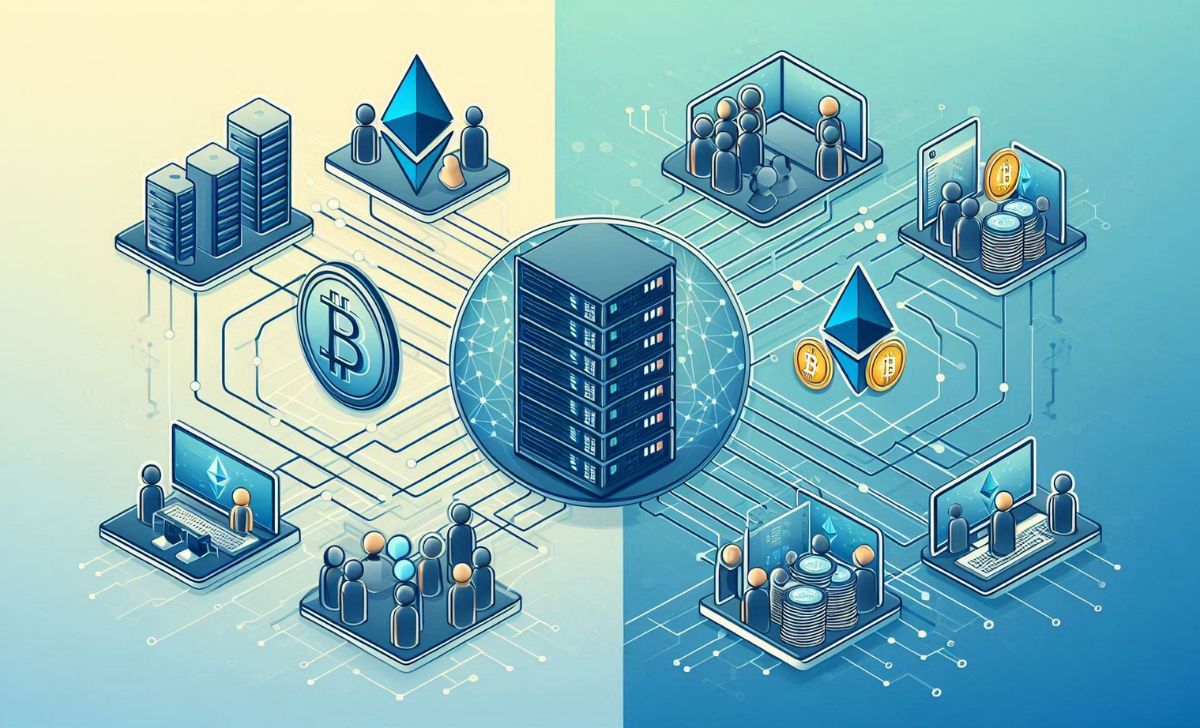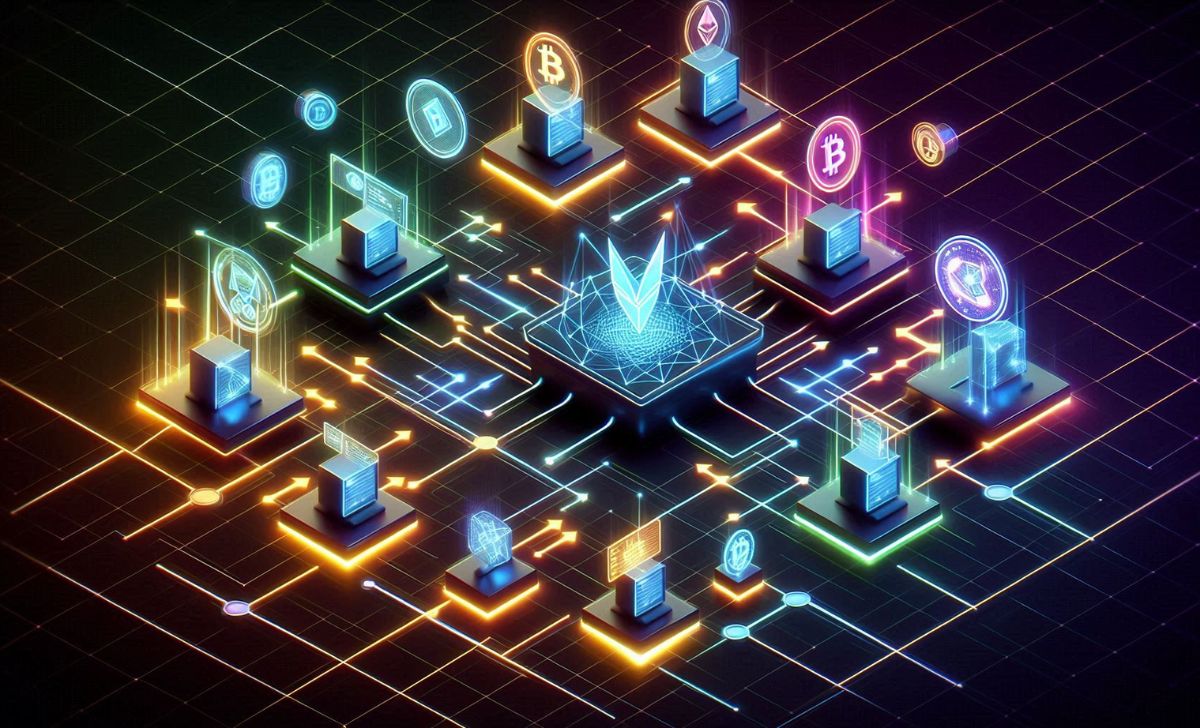Decentralization, with its unique role and growing influence in the digital economy, is receiving increasing attention. You might be wondering about its definition and meaning in the world of cryptocurrency. This article from TopCoin9 will help you gain a clearer understanding of this concept.
What Does Decentralization Mean in Crypto?

To put it simply, decentralization refers to a system where no single entity has control. In the world of cryptocurrency, this means that power and decision-making are distributed across a network of participants, instead of being managed by a central authority like a bank or government.
For example, when people ask, “What does decentralization mean in crypto?”, it typically points to how cryptocurrencies like Bitcoin function without needing a central bank to authorize transactions. Every action is validated by a decentralized network of computers.
Unlike centralized systems, where control is held by a few, decentralized networks allow for transparency, fairness, and resistance to censorship.
Now that we’ve understood the concept, let’s explore why decentralization is so vital to blockchain technology’s growth and adoption.
Why Decentralization Matters in Blockchain Technology

The decentralization meaning goes beyond just avoiding central control—it lays the foundation for trustless and secure transactions. In decentralized systems:
- There’s no single point of failure.
- Users have more control over their data and assets.
- The system becomes more secure against hacks or corruption.
In blockchain, decentralization ensures that the ledger is shared across all network nodes. This means anyone can verify transactions, making the system transparent and trustworthy.
To fully appreciate how this works in practice, let’s take a look at the inner mechanics of a decentralized network.
How Does a Decentralized Network Work?

A decentralized network uses a peer-to-peer (P2P) structure. Instead of relying on a central server, the workload and information are spread across all nodes (computers) in the network. These nodes validate and store transaction cryptocurrency, ensuring everyone has the same data.
Blockchains also use consensus mechanisms like:
- Proof of Work (PoW) – used by Bitcoin, where miners solve complex puzzles to confirm transactions.
- Proof of Stake (PoS) – used by Ethereum 2.0 and others, where validators are chosen based on how much crypto they “stake” as collateral.
In Proof of Work systems, the process known as Crypto Mining plays a crucial role. It not only helps secure the network but also creates new coins and verifies transactions without the need for a central intermediary.
This structure makes it difficult for any single party to alter records without the consensus of the entire network.
To make this more relatable, let’s take a look at real-world examples of crypto projects that rely on decentralization.
Real-World Examples of Decentralized Crypto Projects

Several major cryptocurrencies and blockchain platforms are built entirely on the idea of decentralization:
- Bitcoin: The first and most well-known example. It’s a fully decentralized digital currency that allows global transactions without needing a bank.
- Ethereum: Not just a currency, but a decentralized platform for building smart contracts and dApps (decentralized applications).
- DAOs (Decentralized Autonomous Organizations): These are organizations governed by code, not people, where decisions are made via community voting.
- Stablecoin: A form of cryptocurrency designed to maintain a stable value, typically pegged to a fiat currency like the US Dollar, often used in decentralized finance (DeFi) systems.
These projects showcase how powerful decentralization can be when applied correctly. But its impact is not limited to the crypto world alone.
Beyond Crypto: The Broader Impact of Decentralization

The decentralization meaning extends into various industries beyond finance. For example:
- Web3: A new internet vision where users control their data and identity.
- DeFi (Decentralized Finance): Financial systems without banks, where users borrow, lend, or trade assets directly.
- Supply Chain Management: Track goods and verify authenticity in real time across a decentralized ledger.
In these areas, decentralization helps reduce dependency on intermediaries and empowers individuals to control their own digital interactions. Many of these developments rely on understanding crypto terms that are rapidly evolving with the technology.
Still curious about the concept? Let’s quickly review what you need to remember.
Key Takeaways on Decentralised Meaning in Crypto
Understanding what decentralization means in crypto is essential for anyone entering the blockchain space. It:
- Eliminates central control
- Promotes security and transparency
- Enables a more open and user-driven system
As crypto continues to grow, so does the importance of decentralization in shaping the future of technology and digital freedom.
Decentralization is more than a trend it’s a transformative force in the crypto world. As blockchain technology advances, understanding this concept becomes essential for both investors and developers. For more insightful guides and updates on crypto innovations, visit TopCoin9 today.

As a certified blockchain security expert with over 8 years in cybersecurity, James Anderson specializes in auditing smart contracts and identifying vulnerabilities in DeFi protocols. His expertise ensures that TopCoin9 delivers reliable insights on blockchain security and risk management.
Email: [email protected]












